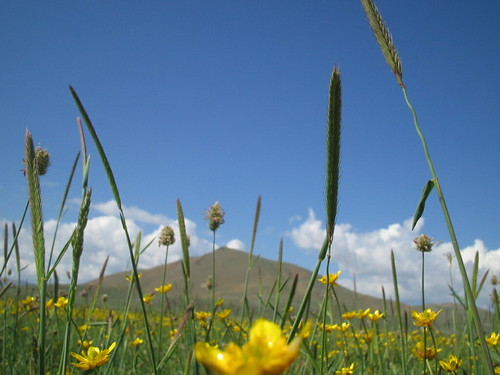I've recently posted several Nigeria themed articles on The Nervous Breakdown. I started writing up a series of scatter-shot observations, 50 in all, on the occasion of the country's golden jubilee. The first part of "50 Observations on 50 years of Nigeria," items 1 - 16, touches on our staple food, fufu, military coups, parenting, machetes, the national anthem, Niger delta pollution, malaria, rainy season, "Ghana must go," Fela, and much more. The second part runs from items 17 - 32, touching on the principal languages, street hawkers, economics, religion, colonization, okada, Dele Giwa, clothing, ogogoro, and includes a brief La Divina Commedia parody aimed against the scum who light gas flares. The third part runs from items 33 - 50 and touches on Pidgin, Nollywood, masquerades, jaas, football, literature, the civil war and the cold war, serious oyinbo grammar, and of course partying.
My own interactions with the land of my birth have been complex, with so much time spent abroad, but so many crucial, formative years spent in Nigeria. I admit there is so much of me that reflects the time spent in America, and I do have a significant bent towards Britain, but the Igbo and overall Nigerian consciousness within me is mountainous. It's my utter foundation. I think I speak about Nigeria with an unflinching eye to my experiences of its glories, its tragedies, and its absurdities, but regardless of context and mood, my hope and faith in Nigeria is unquenchable, and I hope that's plain in my series.

As a sort of epilogue to the series, I posted an interview with award winning Nigerian-American novelist
Nnedi Okorafor, whose African themed fantasy and science fiction stories have always delighted me. She was a good college friend of Chimezie, whom I met a few times while visiting my brother in University. He brought my attention to
Zahrah the Windseeker, and I was hooked, and I'm hardly alone in that. Her work has been hoovering up prizes and acclaim, and she is incubating some very exciting projects in multiple media. In the interview I ask her primarily about the "bubbling calabash of language stew" in her latest novel
"Who Fears Death." I also include a couple of gorgeous illustrations related to Nnedi's work, including the cover of Zahrah, and a pair of drawings by Ross Campbell, to whose work I was just introduced while preparing this interview. I'm really struck by Campbell's skill and feeling drawing ethnically diverse characters.
It has been a busy period following the
birth of my daughter, with many exciting developments at work, a scare for my father's health (
to which Chimezie has alluded), a more hectic than expected holiday period, and much more. I'm always grounded by my family, but it was very nice to be further grounded by so much contemplation of the past, present and future of that paragon of complexity, my native Nigeria.


 As a sort of epilogue to the series, I posted an interview with award winning Nigerian-American novelist
As a sort of epilogue to the series, I posted an interview with award winning Nigerian-American novelist 

